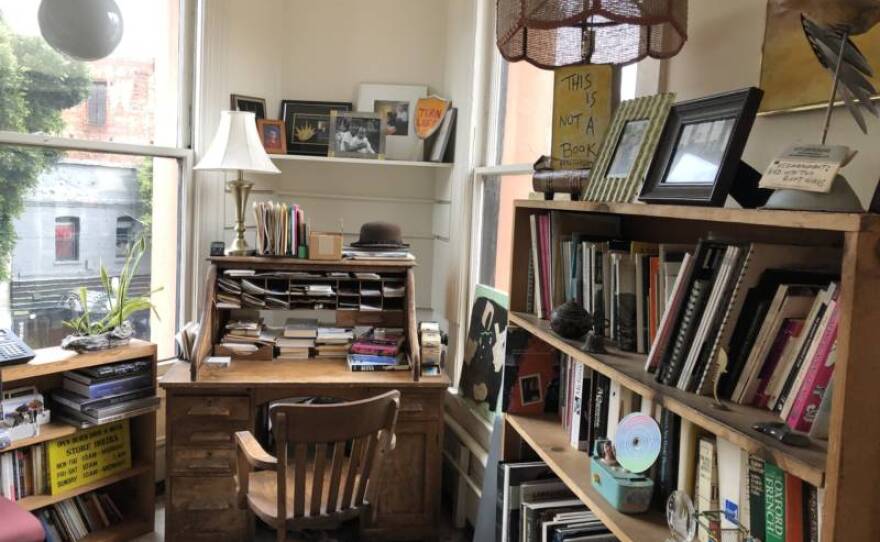Until recently, Lawrence Ferlinghetti was vacationing in Mexico, popping into City Lights — the trailblazing bookstore and publishing house he founded in San Francisco in the early 1950s — and working on his paintings and poetry. But the last couple years have been tough on the literary icon's body as he approaches his 100th birthday on March 24. Ferlinghetti is nearly blind, spends a lot of time resting and no longer does in-person interviews.
"There's an echo in my phone," he said when his aide, writer and curator Mauro Aprile Zanetti, connects our call. "I'm not getting your voice very clearly."
But as soon as the connection clears up, Ferlinghetti is like a Formula One driver. He leaves me in the dust.
"I have an engine that doesn't run on petroleum!" he said, with a wheezing chuckle. "It runs on pure energy."
The poet, publisher and activist wants to start a revolution. But he said America isn't ready for it yet.
"It would take a whole new generation not devoted to the glorification of the capitalist system," he said. "A generation not trapped in the me, me, me."
The author's new autobiographical novel, “Little Boy,” is coming out next week, too. And various San Francisco organizations have been planning monthlong celebrations in his honor.
There are readings of his poetry, exhibitions of his paintings, parties, an olive tree planting and more. The San Francisco Mayor's Office is scheduled to announce an annual Lawrence Ferlinghetti Day on his birthday, March 24.
The fuss is not unfounded. Ferlinghetti helped to change the face of literary culture in the United States when he co-founded City Lights in 1953 with Peter Martin.
The bookstore and publisher became an institution, attracting and influencing literary figures across generations, from “On the Road” author Jack Kerouac to bestselling San Francisco writer and publisher Dave Eggers.

"Everything we did was sort of influenced by City Lights," Eggers said. "We were trying to stand on their shoulders."
Born in Yonkers, New York in 1919, Ferlinghetti came to California in the early 1950s, drawn to it as a place where people could start over. It was what he called this country’s "last frontier."
Ferlinghetti's mission for City Lights was aligned with his socialist politics: to break poetry out of its stuffy academic cage and make it accessible to all.
It was a massive risk.
"We were young and foolish," he said. "And we had no money."
In 2015, KQED spent time with Ferlinghetti, just before he turned 95.
Unlike other bookstores around the country, City Lights was open seven days a week and late into the night. He wanted to create a sense of community — a place for people to toss around ideas.
Plus, the business was originally focused on selling paperback books at a time when the literary establishment only cared about hardbacks.
"Paperbacks weren't considered as real books," said Ferlinghetti. "The only paperback books were murder mysteries and some science fiction books."
But Ferlinghetti was all about democratizing literature.
City Lights weathered its fair share of ups and downs over the years, like financial woes, and Ferlinghetti’s arrest in 1957 on obscenity charges for publishing Allen Ginsberg’s groundbreaking, epic poem “Howl.” The charges were dropped, setting an important precedent for reduced censorship in the publishing world.
City Lights’ current publisher and director Elaine Katzenberger said the business continues to draw customers from all over the globe, despite the challenges facing today's publishing industry.
"We don't have bestsellers, and we're not publishing bestsellers," Katzenberger said of cleaving to the founder's anti-commercial leanings.
"Staying true to those ideals and maintaining them, that's the hardest thing. And on the other hand, it's the most important thing."
Many thanks to Mauro Aprile Zanetti for his help with this story.





